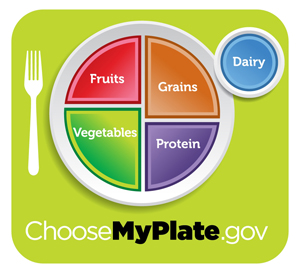October 25th, 2012 by admin in Opinion
1 Comment »

Photograph: Roger Bamber
How far do we travel from our parents’ patterns? A question psychotherapists and their clients have been wrestling with for decades.
We can’t escape the parental imprint. Some of us may not want to. But those of us who did hope to be different often find ourselves in our 40s or 50s unexpectedly leaking parental behaviors or attitudes we thought we had purged ourselves of in our 20s.
I sometimes hear myself saying to Richard, my partner, as he heads out the door for his Tae Kwon Do class, “Be careful.” He has a second degree black belt and has been studying for years. He is always careful. My admonition is a spillover of my father’s anxious voice warning me to be on the lookout for endless, unnamed dangers hiding in plain sight at every turn. Other times I see myself tighten up like a fist when something I thought I had control over twists in an unpredictable direction. It is not my jaw that clenches in agitation; it is my mother’s jaw, on my face.
How our parents do or did illness is a powerful pattern. Did they suffer in silence, while allowing no one to offer tenderness or help? Did they submerge into illness and allow it to define who they were? Did they use illness to control and manipulate? To get attention? Did they remain engaged in living and loving? Did they learn from illness to become more fully who they were? Did they become nastier to each other? Or sweeter? And finally, did they take care of each other — physically and emotionally?
My parents, who kept each other at a distance when well, became even more separated when ill. They went so far as to resent each other for their increasing incapacities. It was not pretty.
There were times when I was in the thick of my pain condition, that I isolated and withdrew from Richard. But more often, I allowed my pain to teach me to reach out for comfort and connection. I had to. For me, the voice of pain was more powerful than my parents’ example.
Dealing with illness can be a consuming job. When you find yourself behaving in ways that don’t create the kind of bridge to your partner that will help lighten the load for both of you, pause and ask yourself: “Am I playing out a pattern that doesn’t really belong to me? Whose voice am I speaking with? Can I do it differently?”
How did your parents deal with illness? What did you learn to do and not to do from them?
***
Barbara Kivowitz is a psychotherapist, business consultant, and book author. She blogs regularly at In Sickness And In Health.
October 12th, 2012 by admin in Health Tips
No Comments »
 As fathers, one of our most important responsibilities is to be there for our children. Work and travel schedules may make it difficult to be home every night for dinner or to catch every baseball game or music performance, but taking action on a few simple things can help us invest in our health today to ensure we are around to support and guide our children as they grow.
As fathers, one of our most important responsibilities is to be there for our children. Work and travel schedules may make it difficult to be home every night for dinner or to catch every baseball game or music performance, but taking action on a few simple things can help us invest in our health today to ensure we are around to support and guide our children as they grow.
As the survivor of a health scare a few years ago, I have made a personal commitment to a simple, five-point plan for health – and I encourage others to do the same. Here’s the plan I follow that can also help you invest in your future:
1. Know your numbers – Cholesterol, blood pressure, blood sugar. The key to good health is understanding first where you stand, and what you need to improve. For me, I love to cook so it’s about reducing the amount of salt and sugar I use to keep my numbers in check.
2. Know your history – Just as important as the lifestyle you lead is what you’ve inherited from your family. Knowing what you face genetically can go a long way in ensuring your current and future health. Share your family history with your physician who can help develop a customized health care plan that allows you to monitor and track against illnesses for which you might be disproportionately at risk due to what you’ve inherited.
3. Make balanced choices in your diet – Healthy eating isn’t about denying yourself every food you enjoy. As my doctor likes to say, you don’t have to give up everything. You never will be successful. But you do have to discipline yourself, and that’s something I have been working on as I try to manage my own weight. It’s not about going on a diet, which is based on denial, but about making responsible decisions that let you enjoy the foods and drinks you love, but in moderation. It’s tempting to eat steak and burgers – but research continues to caution against eating too much red meat. Instead of reaching for the chips, eat celery or carrot sticks instead. And instead of grabbing that cookie, reach for a peach or an apple to satisfy your sweet tooth.
4. Get moving! Get active – Most of us sit behind desks – or in traffic – for a good part of the day, so I can’t emphasize this point often enough. Physicians usually recommend at least 30 minutes of exercise, five days a week. You don’t have to be an athlete to get active – just walk, walk, walk! As president of a large, national health care organization, I log many miles traveling to our various sites. During my time on the road, I often take a personal walking tour of the many cities I visit. Walking doesn’t take fancy equipment and you don’t need to dress up or drive somewhere to do it. All you need is a sturdy pair of walking shoes, and many hotels provide maps for walking. You can even log miles and track your progress with walking partners at www.everybodywalk.com.
5. Have a good relationship with your physician. I respect – and also really like my doctor. She is more than a physician; she is a great coach. You should have the type of relationship with your physician where you feel he or she is on your team. If you don’t feel comfortable with your physician or don’t think of her or him as a partner in your life plan for health, then it’s time to find a doctor who can support your path to total health.
According to the U.S. Surgeon General, 80 percent of premature deaths in the U.S. are caused by four preventable behaviors: lack of physical activity, poor diet, alcohol use and smoking. The five steps I’m sharing with you are simple behavioral changes that won’t take up a lot of time, and will pay off in dividends in 10, 20, even 30 years down the road. Making time to invest in your health is a commitment well worth making and every effort you contribute starting today, will pay significant dividends for years to come.
Bernard J. Tyson is president and chief operating officer of Kaiser Foundation Hospitals and Health Plan, Inc.
October 28th, 2011 by Dr. Val Jones in Health Tips
2 Comments »
 As I’ve been coaching the families in the Boys & Girls Clubs’ Triple Play Fit Family Challenge I’ve received some excellent questions about how to modify food preparation to make meals more healthful. I thought I’d share some of my nutrition tips on my blog – and feel free to chime in as well in the comments section! (Please note that I have no relationship with the manufacturers of the products I mention below. I happen to like and use them, but I’m sure there are many others that are good.) Here’s what I told one of the families:
As I’ve been coaching the families in the Boys & Girls Clubs’ Triple Play Fit Family Challenge I’ve received some excellent questions about how to modify food preparation to make meals more healthful. I thought I’d share some of my nutrition tips on my blog – and feel free to chime in as well in the comments section! (Please note that I have no relationship with the manufacturers of the products I mention below. I happen to like and use them, but I’m sure there are many others that are good.) Here’s what I told one of the families:
At first it’s hard to make the switch to “healthy” cooking because let’s face it, fat and sugar taste so good. However, there are ways to substitute healthier choices that are delicious too. And over the long haul, you can actually change your taste buds so that they LIKE lower-fat options. It seems unbelievable, but honestly – I have learned to prefer sugar-free peanut butter, whole grain bread, and skinless chicken to the regular stuff. One thing I will say, though, is that as long as no one has any high blood pressure or kidney problems – salt is ok. I think too much has been made about the “dangers” of salt. Healthy bodies can easily get rid of extra salt… so no need to torture yourself with a low salt diet. If you cut out junk food and fast food, your salt intake will likely fall to healthy levels. 😉
Here are general tips for healthy eating:
Read more »
August 11th, 2011 by Edwin Leap, M.D. in Health Policy, Opinion
1 Comment »

The American College of Graduate Medical Education has enacted further restrictions on resident work hours. No more than 80 hours per week of work for resident physicians, averaged over one month. And no more than 16 hours of continuous work for first year residents (24 after that), which includes patient care, academic lectures, etc.
Whenever they do this sort of thing, everyone seems excited that it will make everyone safer. After all, residents won’t be working as much, so they’ll be more rested and make much better decisions. It’s all ‘win-win,’ as physicians in training and patients alike are safer.
I guess. The problem of course is that after training, work hours aren’t restricted. There is no set limit on the amount of work a physician can be expected to do, especially in small solo practices, or practices in busy community hospitals.
I understand the imperative to let them rest. I understand that fatigue leads to mistakes. I get it! But does the ACGME get it? Read more »
*This blog post was originally published at edwinleap.com*
July 23rd, 2011 by KerriSparling in Opinion
No Comments »

Lead by Korey Hood and Stefan Rubin, the Parenting with Type 1 Diabetes session at Friends for Life was aiming to touch upon the different challenges of being a parent with type 1 diabetes, instead of the concentration on parenting a child with type 1 diabetes that Children With Diabetes was once known for. This was my first year attending this session, and I sat between two of my best friends in the diabetes community – Scott and George.
“So thanks for coming, you guys. We’re here to talk about parenting with type 1 diabetes,” said Korey.
At this point, people started doing introductions. “Hi, I’m So-and-So and I was diagnosed with diabetes in 1998.” or “I’ve been diabetic for 16 years and I have three children.” Only introductions. That’s it.
So why was I already crying? Read more »
*This blog post was originally published at Six Until Me.*



 As fathers, one of our most important responsibilities is to be there for our children. Work and travel schedules may make it difficult to be home every night for dinner or to catch every baseball game or music performance, but taking action on a few simple things can help us invest in our health today to ensure we are around to support and guide our children as they grow.
As fathers, one of our most important responsibilities is to be there for our children. Work and travel schedules may make it difficult to be home every night for dinner or to catch every baseball game or music performance, but taking action on a few simple things can help us invest in our health today to ensure we are around to support and guide our children as they grow. As I’ve been coaching the families in the Boys & Girls Clubs’
As I’ve been coaching the families in the Boys & Girls Clubs’ 









